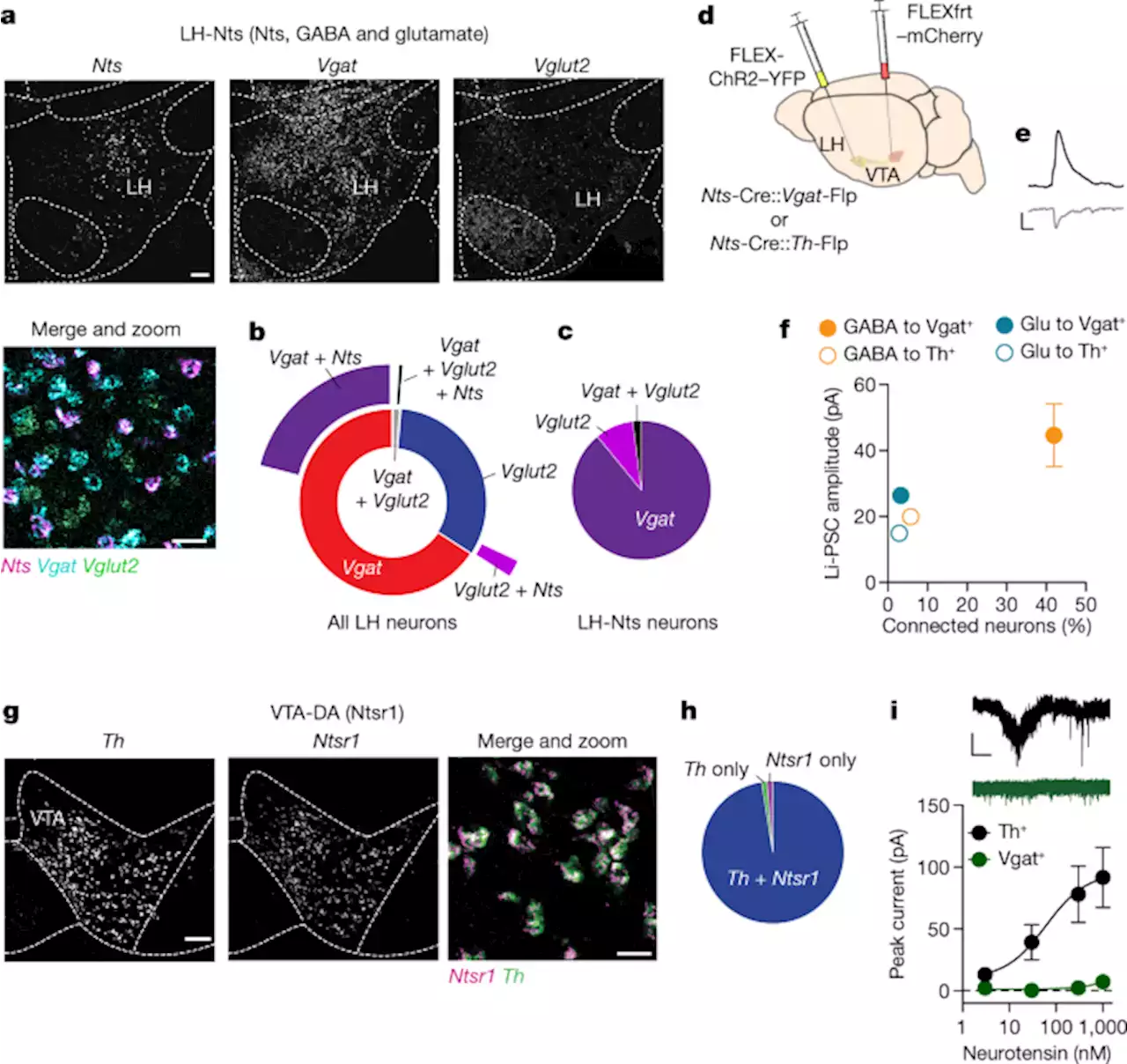Nature research paper: Circuit coordination of opposing neuropeptide and neurotransmitter signals
Fast-acting neurotransmitters and slow, modulatory neuropeptides are co-released from neurons in the central nervous system, albeit from distinct synaptic vesicles. The mechanisms of how co-released neurotransmitters and neuropeptides that have opposing actions—for example, stimulatory versus inhibitory—work together to exert control of neural circuit output remain unclear.
We demonstrate that neurons within the lateral hypothalamus that produce the stimulatory neuropeptide neurotensin and the inhibitory neurotransmitter GABA utilize these signals to coordinately activate dopamine-producing neurons of the ventral tegmental area.
South Africa Latest News, South Africa Headlines
Similar News:You can also read news stories similar to this one that we have collected from other news sources.
Functional Group Translocation of Cyano Groups by Reversible C–H Sampling - NatureNature research paper: Functional Group Translocation of Cyano Groups by Reversible C–H Sampling
Read more »
Formation of the Methyl Cation by Photochemistry in a Protoplanetary Disk - NatureNature research paper: Formation of the Methyl Cation by Photochemistry in a Protoplanetary Disk
Read more »
The Nature of TwinsRecent studies of identical twins have challenged our most entrenched views of behavioral development. What do these studies reveal about human nature?
Read more »
Custodian cuts off annoying alarm at university lab, destroys decades of researchThe custodian thought he was turning on a circuit breaker when he actually turned it off.
Read more »
EU nature law on knife-edge after losing first voteA European Union Parliament committee on Tuesday rejected the bloc's landmark law to protect nature, which the Parliament's biggest lawmaker group is leading a campaign to block in a decisive vote next month.
Read more »
Multiplex-GAM: genome-wide identification of chromatin contacts yields insights overlooked by Hi-C - Nature MethodsMultiplex-genome architecture mapping (multiplex-GAM) enables rapid, unbiased, ligation-free mapping of genome-wide chromatin interactions.
Read more »
